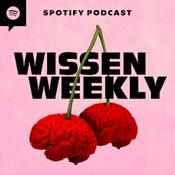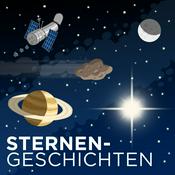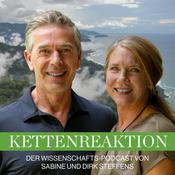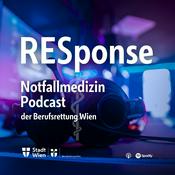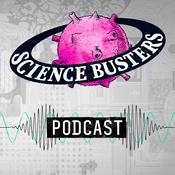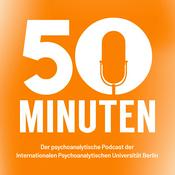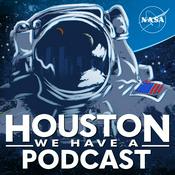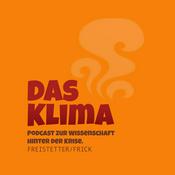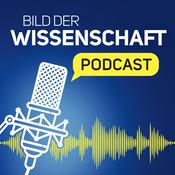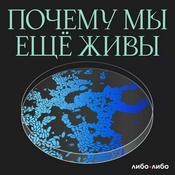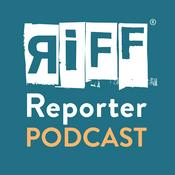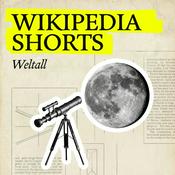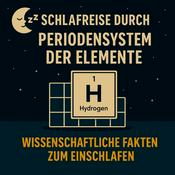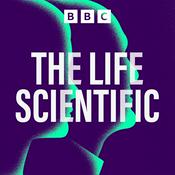1884 Episoden
- In this episode of Science Quickly, we dive into Google DeepMind’s new artificial intelligence model AlphaGenome, which could help researchers better understand how noncoding DNA shapes gene expression. We also look at how doctors pulled off a medical marvel when they kept a man alive without lungs for two days. Plus, we learn how researchers cracked an evolutionary puzzle involving a peculiar flower.
Recommended Reading:
Google DeepMind unleashes new AI to investigate DNA’s ‘dark matter’
Doctors keep patient alive using ‘artificial lungs’ for two days
Babies who attend daycare share ‘good’ germs, too
E-mail us at [email protected] if you have any questions, comments or ideas for stories we should cover!
Discover something new everyday: subscribe to Scientific American and sign up for our daily newsletter.
Science Quickly is produced by Kendra Pierre-Louis, Fonda Mwangi, Sushmita Pathak and Jeff DelViscio. This episode was edited by Alex Sugiura, with fact-checking by Shayna Posses and Aaron Shattuck. Our theme music was composed by Dominic Smith.
Learn more about your ad choices. Visit megaphone.fm/adchoices - In this episode of Science Quickly, host Kendra Pierre-Louis talks with Katie Hafner of the podcast Lost Women of Science about the remarkable but often overlooked physicist and chemist Katharine Burr Blodgett, whose pioneering work in early nanotechnology led to nonreflective glass. Hafner shares why the Lost Women of Science team devoted nearly a year to uncovering Blodgett’s full story and reflects on the broader mission to restore women to the scientific record.
Recommended Reading:
The chemical genius of Katharine Burr Blodgett
Listen to more podcasts from the Lost Women of Science Initiative
E-mail us at [email protected] if you have any questions, comments or ideas for stories we should cover!
Discover something new everyday: subscribe to Scientific American and sign up for our daily newsletter.
Science Quickly is produced by Kendra Pierre-Louis, Fonda Mwangi, Sushmita Pathak and Jeff DelViscio. This episode was edited by Alex Sugiura, with fact-checking by Shayna Posses and Aaron Shattuck. Our theme music was composed by Dominic Smith.
Learn more about your ad choices. Visit megaphone.fm/adchoices - Many people turn to expensive perfumes to elevate their natural scent and smell more pleasant to others. But what if you could achieve that just by switching up your diet? In this episode of Science Quickly, host Kendra Pierre-Louis talks with freelance journalist Sofia Quaglia about the science behind how what we eat can subtly change how we smell—and how attractive others perceive us to be. The conversation explores surprising findings about garlic and armpit odor, counterintuitive effects of meat intake on body scent and the strange, smelly experiments behind this research.
Recommended Reading:
“The foods that make you smell more attractive,” by Sofia Quaglia, in BBC Future. Published online November 2, 2025
E-mail us at [email protected] if you have any questions, comments or ideas for stories we should cover!
Discover something new everyday: subscribe to Scientific American and sign up for our daily newsletter.
Science Quickly is produced by Kendra Pierre-Louis, Fonda Mwangi, Sushmita Pathak and Jeff DelViscio. This episode was edited by Alex Sugiura, with fact-checking by Shayna Posses and Aaron Shattuck. Our theme music was composed by Dominic Smith.
Learn more about your ad choices. Visit megaphone.fm/adchoices A historic moon mission, AI that helps restore stroke patients’ voice and the oldest cave art ever found
26.1.2026 | 11 Min.In this episode of Science Quickly, we look at the stakes behind Artemis II, NASA’s historic lunar flyby mission that’s preparing to launch soon. We’ll also dive into the science behind Revoice, an artificial-intelligence-powered wearable device that could help stroke patients with speech impairment communicate. Plus, we discuss how previously overlooked art on the ceiling of an Indonesian cave could rewrite the story of early human migration.
Recommended Reading:
NASA’s historic Artemis II moon mission is almost ready to launch
Oldest cave art ever found discovered in Indonesia
‘Bat accelerator’ unlocks new clues to how these animals navigate
E-mail us at [email protected] if you have any questions, comments or ideas for stories we should cover!
Discover something new everyday: subscribe to Scientific American and sign up for our daily newsletter.
Science Quickly is produced by Kendra Pierre-Louis, Fonda Mwangi, Sushmita Pathak and Jeff DelViscio. This episode was edited by Alex Sugiura, with fact-checking by Shayna Posses and Aaron Shattuck. Our theme music was composed by Dominic Smith.
Learn more about your ad choices. Visit megaphone.fm/adchoices- In this episode of Science Quickly, host Kendra Pierre-Louis speaks with forensic scientist Rhonda Roby about an ambitious effort to uncover traces of Leonardo da Vinci’s DNA using modern forensic techniques. Roby and her colleagues are carefully sampling centuries‑old artworks, working with extremely small amounts of biological material, to learn more about Leonardo himself and the history of his art while also advancing methods that could one day help authenticate artworks. The episode explores how forensic approaches typically used in criminal investigations are being applied to a 500‑year‑old historical puzzle.
Recommended Reading:
The Race to Find Leonardo da Vinci’s DNA Just Took a Major Twist
“The real da Vinci code,” by Richard Stone, in Science, Vol. 391; January 8, 2026
E-mail us at [email protected] if you have any questions, comments or ideas for stories we should cover!
Discover something new everyday: subscribe to Scientific American and sign up for our daily newsletter.
Science Quickly is produced by Kendra Pierre-Louis, Fonda Mwangi, Sushmita Pathak and Jeff DelViscio. This episode was edited by Alex Sugiura, with fact-checking by Shayna Posses and Aaron Shattuck. Our theme music was composed by Dominic Smith.
Learn more about your ad choices. Visit megaphone.fm/adchoices
Weitere Wissenschaft Podcasts
Trending Wissenschaft Podcasts
Über Science Quickly
Host Rachel Feltman, alongside leading science and tech journalists, dives into the rich world of scientific discovery in this bite-size science variety show.
Podcast-WebsiteHöre Science Quickly, Wissen Weekly und viele andere Podcasts aus aller Welt mit der radio.de-App

Hol dir die kostenlose radio.de App
- Sender und Podcasts favorisieren
- Streamen via Wifi oder Bluetooth
- Unterstützt Carplay & Android Auto
- viele weitere App Funktionen
Hol dir die kostenlose radio.de App
- Sender und Podcasts favorisieren
- Streamen via Wifi oder Bluetooth
- Unterstützt Carplay & Android Auto
- viele weitere App Funktionen


Science Quickly
Code scannen,
App laden,
loshören.
App laden,
loshören.

